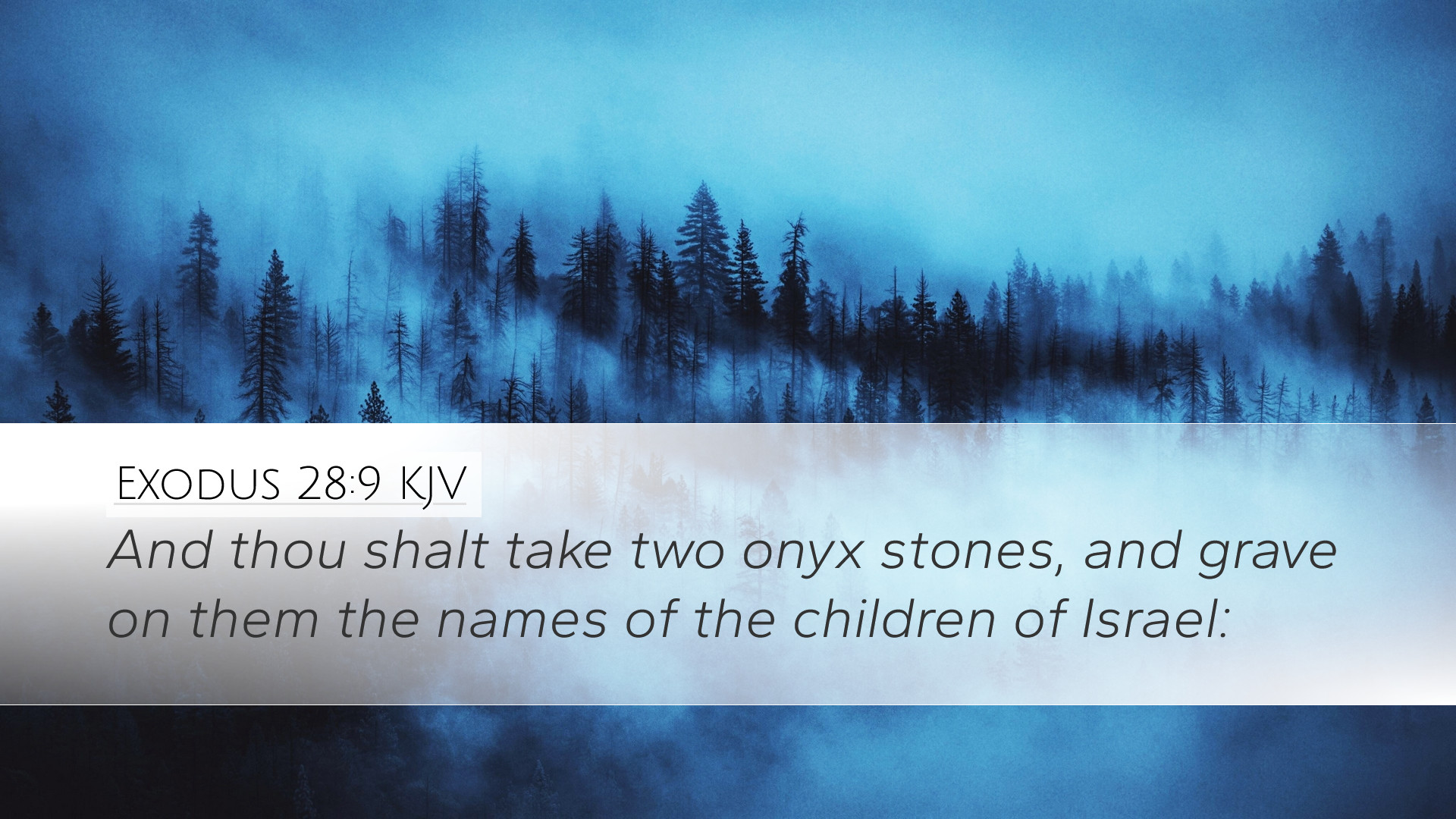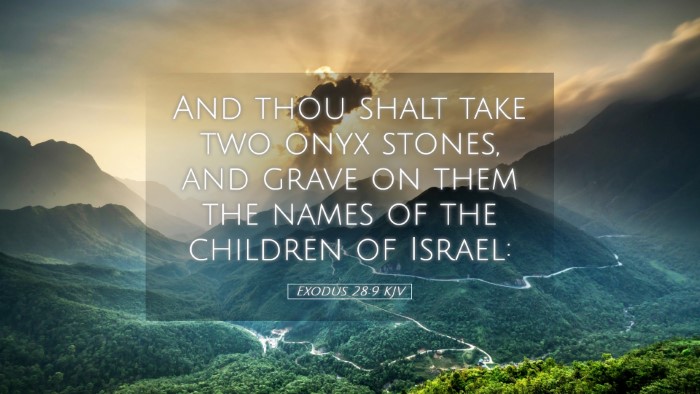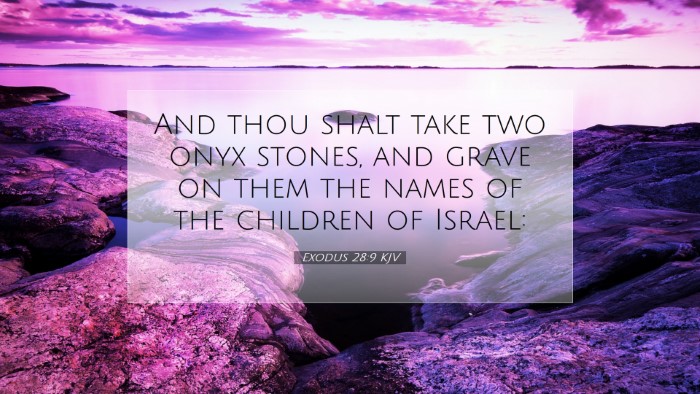Commentary on Exodus 28:9
Exodus 28:9 states, "And thou shalt take two onyx stones, and grave on them the names of the children of Israel." This passage is part of the instructions for the garments of the high priest, specifically detailing the adornments of the breastplate, which holds significant theological and liturgical importance in the Israelite tradition.
Contextual Background
The context of this verse lies within the broader narrative of Israel's journey from Egypt to the Promised Land, highlighted in the book of Exodus. Here, God is giving Moses the commandments and specific instructions for worship, including the attire of the priests. The high priest's garments symbolize the relationship between God and His people, serving as a mediator and representative.
Insights from Public Domain Commentaries
Matthew Henry's Commentary
Matthew Henry emphasizes that the onyx stones serve as a reminder of the twelve tribes of Israel. He notes that these stones are not only ornamental but hold a functional purpose as they are engraved with the names of the sons of Jacob, representing the fullness of God's people before Him. Henry explains that this engraving signifies the high priest's role in bearing the names of Israel on his heart, symbolizing intercession and care.
Albert Barnes' Notes on the Bible
Albert Barnes elaborates on the materials chosen for the breastplate. He points out that the use of onyx stones is significant; onyx is a durable and beautiful stone, indicating the value God places on His people. Barnes notes that the high priest, by wearing these stones, directly represents the children of Israel before God. He further explains that the act of engraving the names mirrors how God has imprinted His people upon His heart, as seen in Isaiah 49:16.
Adam Clarke's Commentary
Adam Clarke approaches the text by commenting on the symbolism of the stones. Clarke identifies that the two onyx stones represent unity and division within the tribes. The division signifies the twelve tribes as a whole yet acknowledges their individual identities. He mentions that this act of engraving serves as a perpetual reminder before God, illustrating His covenant with Israel. Clarke also highlights the preciousness of the high priest's role in fostering a continual intercessory stance for the people.
Theological Implications
Exodus 28:9 embodies profound theological messages relevant to contemporary audiences, including pastors, students, and theologians:
- Representation and Intercession: The high priest's role as the mediator indicates the importance of intercessory prayer and representation. Just as the high priest bore the names of the tribes on his heart, believers today are called to bear one another's burdens in prayer (Galatians 6:2).
- Covenant Relationship: The engraving of names highlights the covenant relationship between God and Israel. This suggests a personal connection where God not only knows His people by name but also actively engages in their lives.
- Identity and Belonging: The names on the stones symbolize God's people being acknowledged and valued. This can encourage modern believers in understanding their identity in Christ, as written in the book of life (Philippians 4:3).
Practical Applications
For pastors and leaders within the church, Exodus 28:9 serves as a reminder of the significance of representation in their ministry. Here are some practical applications to consider:
- Fostering Community: Encouraging a sense of belonging among congregants, reflecting the importance of every individual's contribution to the church body.
- Intercessory Prayer: Establishing robust prayer ministries that intercede for the needs of the church community, echoing the high priest's role.
- Teaching Identity in Christ: Educating church members on their identity as heirs of God, reinforcing how each name is precious and known by Him.
Conclusion
Exodus 28:9 not only details a specific instruction for the ancient priests but also serves as a timeless reminder of God’s personal relationship with His people. By examining this verse through the insights of renowned commentaries, readers can appreciate its multifaceted meanings and apply these truths to their faith journey today. The high priest's act of engraving the names on the onyx stones reinforces God's unwavering commitment to His people, urging modern believers to embrace their identity and intercessory responsibilities within the body of Christ.


